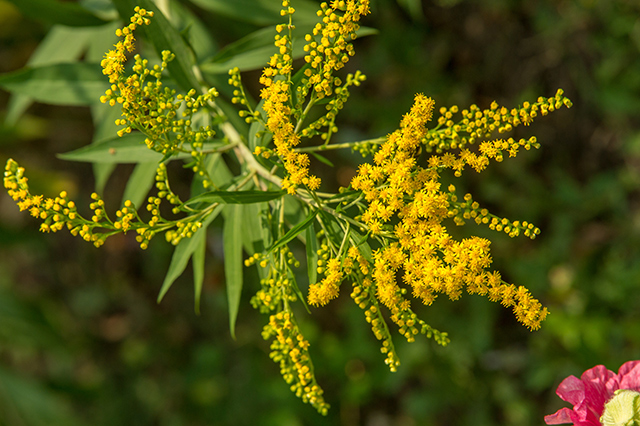Fight off viral infections with the power of quercetin
05/07/2020 / By Janine Acero

Nowadays, a viral infection of any kind is seen as a serious threat, even the most common ones like a simple cold or the flu. As the world faces a public health crisis and medical assistance is limited, natural approaches for treating and preventing illnesses are being considered by more and more people.
Take quercetin, for instance. Research suggests that this plant-derived flavonol has potent antiviral properties, which can be used to naturally treat or prevent viral infections like the flu.
Quercetin vs. influenza viruses
Quercetin is a flavonoid present in many fruits and vegetables. Studies have shown that it can help boost immunity and disrupt the replication of viruses. Some experts believe that it is even more effective and safer to use than Tamiflu (oseltamivir), an antiviral drug commonly prescribed for flu treatment.
A 2016 review published in the journal Viruses reported that, in the early stages of infection, quercetin can stop influenza A viruses from entering their target cells. In fact, quercetin has the ability to prevent influenza viruses from fusing with these cells. (Related: A great reason to consume quercetin? It blocks the flu virus from entering cells.)
Quercetin can also reduce the risk of dying due to severe complications associated with H1N1 infection. In cell culture studies, quercetin has shown inhibitory effects against both H1N1 and H3N2 viruses.
Meanwhile, in animal studies, quercetin has shown that it can protect against the H1N1 virus, which belongs to the influenza A group of viruses. Quercetin also possesses inhibitory effects against influenza B viruses, which are less susceptible to pharmaceutical drug treatments than influenza A.
But more importantly, both influenza A and B viruses seem to be incapable of becoming resistant to quercetin, which is a huge advantage. This is a crucial consideration when developing antiviral treatments due to the growing drug-resistance shown by various strains.
Finally, there is evidence suggesting that quercetin can enhance the efficacy of pharmaceutical antiviral drugs. This not only encourages the use of smaller doses, but it also reduces the risk of adverse effects associated with these drugs.
The authors of the review believe that quercetin could be a “novel antiviral agent that is effective, safe and affordable for the prevention and treatment of flu.”
Besides influenza viruses, quercetin also inhibits the replication of other viruses, such as hepatitis B and C viruses, the herpes simplex virus, the polio virus, the respiratory syncytial virus and HIV.
Sources of quercetin
Quercetin is a plant pigment, which means that brightly colored fruits and vegetables often contain high amounts of this natural compound. Examples of these colorful foods include red apples, dark cherries, red grapes, cocoa, leafy greens and black and green tea. Quercetin is present in abundance in the skins of some of these fruits, so it is advisable to consume your apples or grapes unpeeled.
Other plant-based sources of quercetin include:
- Capers
- Peppers (yellow and green)
- Onions (red and white)
- Shallots
- Asparagus (cooked)
- Tomatoes
- Broccoli
- Kale
- Red leaf lettuce
- Berries (blueberries, cranberries, raspberries, strawberries)
Note that the conditions in which these fruits or vegetables were grown can affect the amount of quercetin they possess. Organically grown produce is found to have up to 79 percent more quercetin than commercially grown varieties.
Quercetin can also be taken as a dietary supplement. The typical dosage for quercetin supplements is 500 mg taken twice a day. Make sure to consult with a natural health practitioner before taking quercetin and other supplements if you have questions, especially if you’re on certain medications, to avoid unwanted reactions.
Find out more about how quercetin supports immunity and overall health at Nutrients.news.
Sources include:
Tagged Under: disease treatments, flavonoids, flu viruses, Fresh, fruits, immune system, immunity, natural cures, natural medicine, organics, phytonutrients, quercetin, superbugs, supplements




















